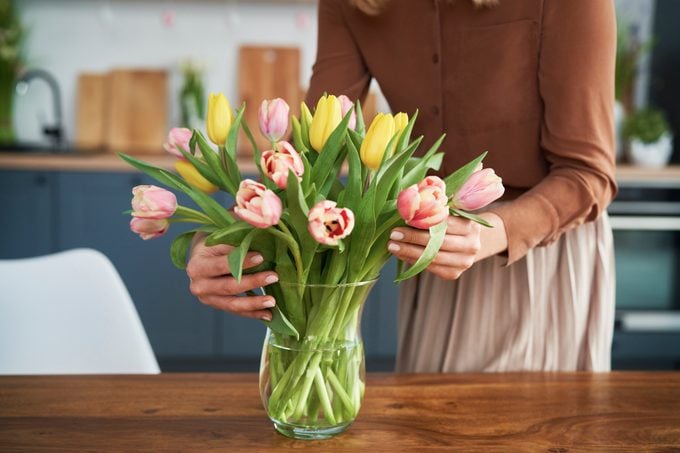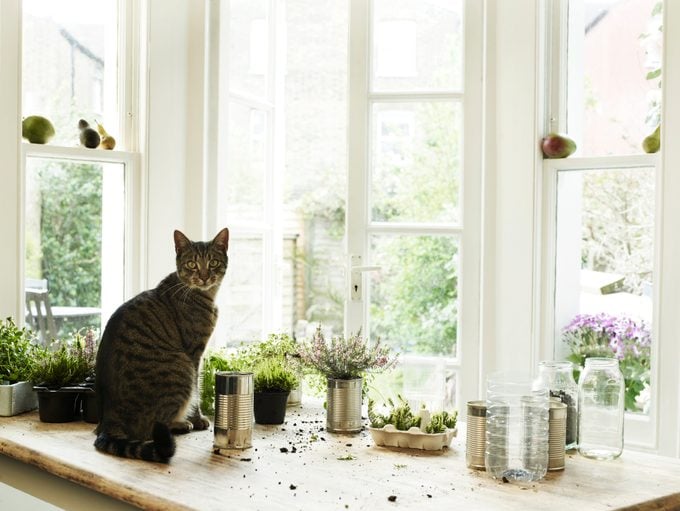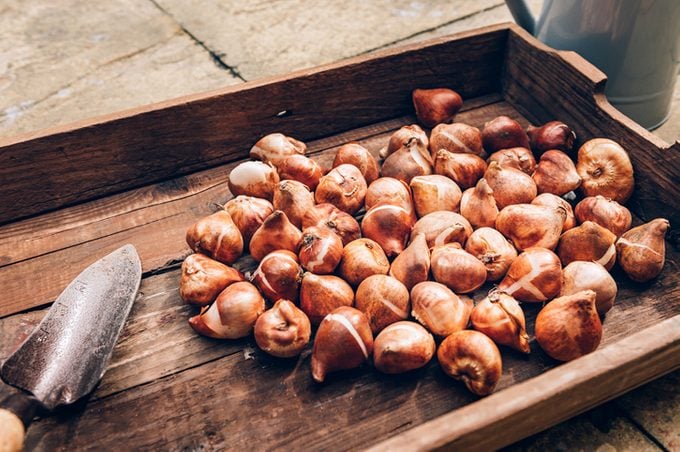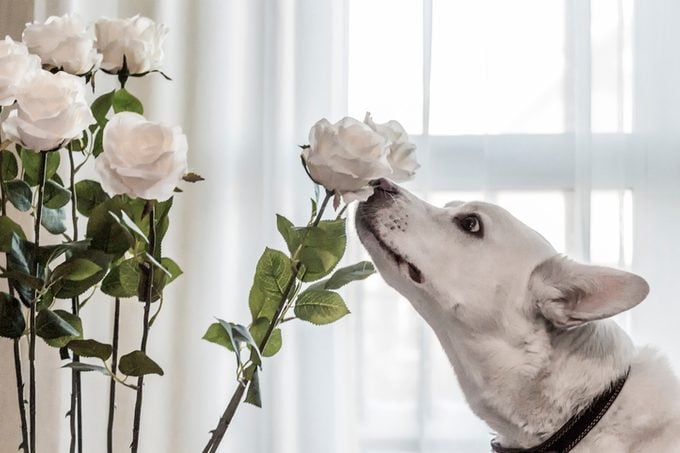Are Tulip Flowers and Bulbs Toxic to Cats?
Updated: Oct. 31, 2022
Can you keep a bouquet of tulips in the house with your curious cat? Find out if tulips are toxic to cats (and dogs!)
Cat Owners Should Avoid Tulips

A vase of colorful tulips is a cheerful addition to any room, and spring blooms outside make your garden look welcoming. But be careful not to allow your cats to go near those tulips. That pretty bouquet could be difficult for indoors cats to resist. You may have wondered, “Are tulips toxic to cats?” Unfortunately, the answer is yes.
As responsible pet owners, we need to be careful and take precautions with flower arrangements and garden plantings. Some varieties are dangerous to our companion animals. Even a small nibble of a tulip could be hazardous. A curious cat that inspects some tulip blooms and ends up ingesting pieces of the flowers can find itself in serious trouble.
Check out 10 pet friendly indoor plants for dog and cat owners.
Why Are Tulips Toxic to Cats?

Tulips (Tulipa spp.) are part of the lily family, and it’s worth noting that lilies and hyacinth flowers are also poisonous for cats. These plants contain toxic chemicals called glycosides, which are harmful to your pet’s health. The tulipalin A and tulipalin B compounds will cause irritation in the delicate membranes of the cat’s mouth and esophagus.
All types of tulips and every part of tulip plants are toxic to cats. This includes the bulb, stem, leaves and flowers. However, the toxins in tulip bulbs are the most dangerous.
Discover 9 poisonous plants every cat owner should avoid.
Risks and Symptoms of Tulip Exposure in Cats

Even a small amount of toxins from tulips can cause your cat discomfort. You may see signs of your cat starting to drool excessively. The cat’s natural defenses in the body will produce additional saliva to flush the toxins out of its system. Mild toxicity can also cause stomach problems, such as diarrhea or vomiting, and central nervous system problems, including lethargy and lack of coordination.
When a large amount of toxins has been consumed, symptoms will be more severe. The cat may have difficulty breathing or a rapid heart rate. If left untreated, tulip poisoning can result in seizures and even lead to coma or death.
A cat that is exposed to tulips could also exhibit signs of irritability and let out fussy vocal sounds of discomfort. These are signals from your cat to let you know that something is wrong.
Is milkweed poisonous to people and pets?
Are Tulips Toxic to Dogs?

Tulips can also be toxic to dogs, resulting in drooling, vomiting and diarrhea. Glycosides can also bother small children and adults with skin discomfort and rashes.
Off limits! Avoid these houseplants that aren’t safe for dogs.
What Should You Do if Your Pet Eats Tulips?
As soon as you suspect your pet may have ingested any part of a tulip, call the ASPCA poison control hotline or your local veterinarian. If the animal is showing signs of compromised health or discomfort, you will need to get help right away. Time is critical to help prevent the situation from becoming more serious.
Explain the symptoms you are seeing and bring your pet in for a thorough examination. Treatment depends on how recently the tulips were eaten, how much your pet ate, the size and weight of the cat, and if the bulb was consumed.
Safe Alternatives to Tulips for Cat Owners
- African violet
- Asters
- Blazing star
- Freesia
- Gerber daisies
- Orchid
- Roses
- Snapdragon
- Statice
- Sunflowers
Tips for Tulip Safety
Check any bouquets of flowers that come into the house for tulips. Remove tulips from the arrangement and put them in a separate, smaller vase. Place the vase in a room that your cats cannot access.
Tulips bulbs in pots are also popular indoor garden gifts. Curious cats may be interested in the soil. If they dig or scratch in the pot, they could expose the bulbs and try to chew on them. So keep any planters with bulbs far out of your pet’s reach.
If you grow tulips outside, keep your cats inside so that they cannot come in contact with the flowers. Store bulbs securely in your garage or garden shed.
Another alternative is to decorate with silk flowers in your home instead of real tulips.




















